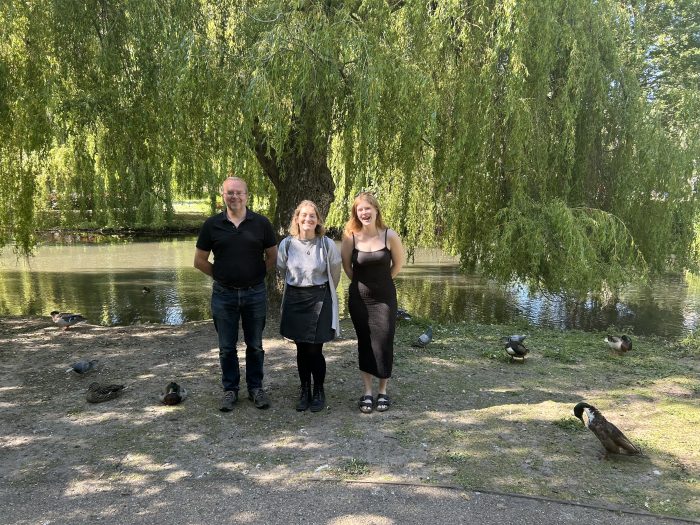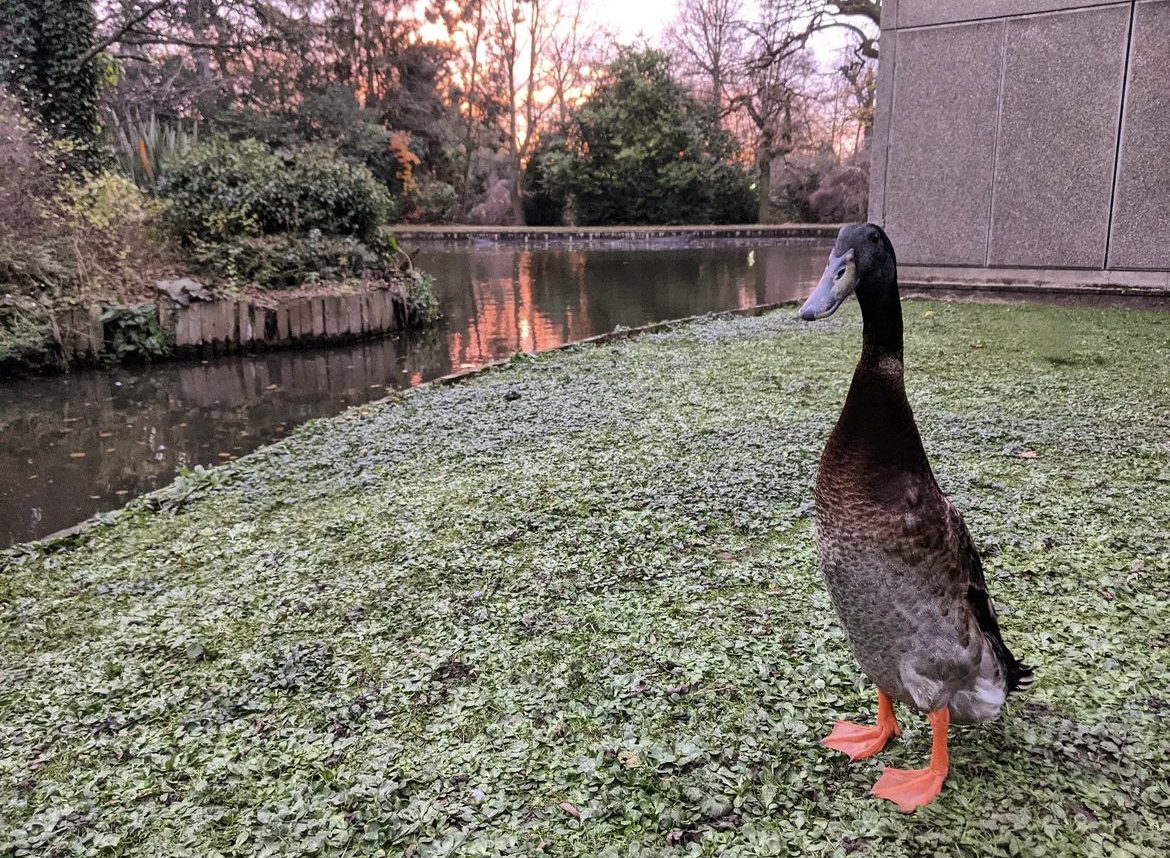As the passing of UoY mascot Long Boi offers an important moment to recognise his impact on student life, Vision spoke with experts from the Yorkshire Wildlife Trust and the World Wildlife Fund to find the best way to interact with UoY natural spaces, even in the absence of our favourite long-necked feathered-friend.
David Craven from Yorkshire Wildlife Trust noted the special environment the University has access to. “The lakes are really interesting because you get a lot of domestic birds and a lot of wild birds as well because it’s a huge space with lots of quiet safe spaces.”
Discussing the unique presence of Long Boi, David noted his uniqueness would not have been a concern to the bird. Indian Runner is a breed, not a species, so he was easily accepted amongst the flock of more typical ducks. Such domesticated Indian Runners are bred to walk, rather than fly, explaining his commitment to Derwent. Another notable trait of the Longest Boi was his confidence. He was never particularly afraid of humans, which David claims comes from the less aggressive nature of the breed and his familiarity with his fans. and their food offerings.
Despite our favourite duck’s absence, David encouraged ongoing engagement with UoY’s natural spaces. Describing research around ‘Green Social Prescribing’ David notes how there is “an absolutely 100% proven link that green spaces and interacting with nature is good for you and your mental health.”
“So, make a conscious effort to go into that green space. It’s about trying to learn what else is around.”
“Get into a rhythm of seasonality and see what you can spot, on a different day in different conditions. And just embrace it.”
Warning of direct interaction with the remaining wild flock, David advises caution, “Give them their own space.”
“Don’t feel that you’ve got to physically interact. And no bread – ‘bread in moderation’ when 500 students are feeding them is no long moderation.”

YUSU President Pierrick Roger added, “Not only is it what he would have wanted, but sounds of birdsong, flowing water and wind are known to reduce anxiety. And feeding the campus wildfowl is just an extra bit of fun.”
The World Wildlife Fund offered similar advice when approached for comment; “nature can improve your mood, reduce stress, anxiety and fatigue, and help with feelings of loneliness”.
A spokesperson for the fund, Mike Eames, offered condolences as the university community recovers from the loss of Long Boi; “while students are affected by the passing of Long Boi, perhaps they can take some solace by visiting wild ducks living locally and actively protecting and restoring local natural habitats.”
David concluded with a broad sense of optimism:
“The University of York has always had a history on this campus of having wildlife. Something else out there that gets embraced.
“I don’t think that begins or ends with one duck.”
